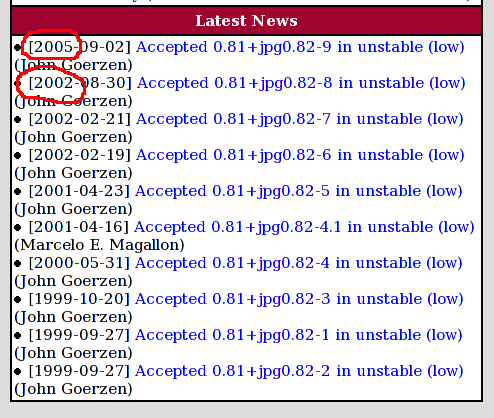Autrijus Tang is well-known for developing the first working Perl 6 interpreter, Pugs. Pugs is written in Haskell, my new favorite language. Perl.com has an interview with Autrijus, and page 2 of that interview gets particularly interesting. Here are some quotes from Autrijus:
Haskell . . . is faster than C++, more concise than Perl, more regular than Python, more flexible than Ruby, more typeful than C#, more robust than Java, and has absolutely nothing in common with PHP.
(If it has nothing in common with PHP, it must be great, right?)
Haskell is a pure functional language optimised for conciseness and clarity. It handles infinite data structures natively, and offers rich types and function abstractions that give Haskell programs a strong declarative flavor–the entire Pugs compiler and runtime is under 3000 lines of code.
Most languages require you to pay a “language tax”: code that does nothing with the main algorithm, placed there only to make the computer happy. [Java, anyone? — jgoerzen]
On the other end of spectrum, we often shy away from abstracting huge legacy code because we are afraid of breaking the complex interplay of flow control and global and mutable variables. Besides, the paths leading to common targets of refactoring–those Design Patterns–are often non-obvious.
Because Haskell makes all side effects explicit, code can be refactored in a safe and automatic way. Indeed, you can ask a bot on #haskell to turn programs to its most abstracted form for you.
Go check out the interview (page 2) for more, including a demo program that Autrijus wrote to show off Haskell.
Thanks to metaperl for the link.
